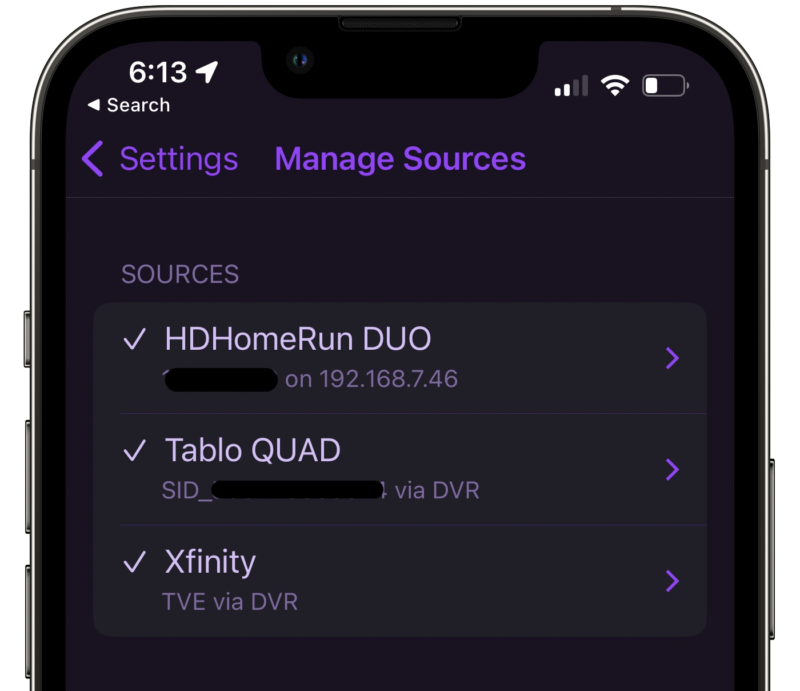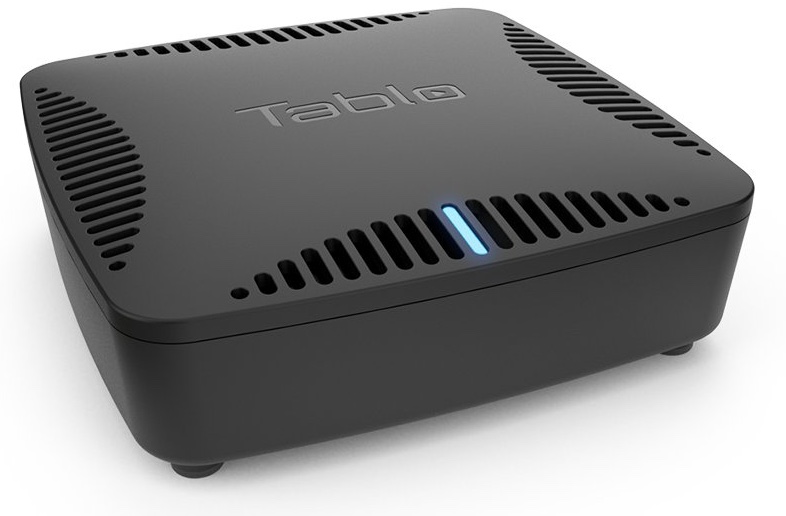On the eve of the Slingbox Shutdown, placeshifting remains alive and well, both institutionally and amongst us geeky… as Channels DVR can now latch onto Tablo hardware.
For those unaware, Tablo is a line of network tuners with subscription-based DVR capabilities. Without the subscription, Tablo is an inexpensive way to stream over-the-air antenna television around the home to a smart phone, Roku, etc — especially if getting in on their frequent refurb deals. By adding a subscription, one gains the complete program guide to support full-featured DVR capabilities along out-of-home streaming.
Overall, Tablo is a solid solution and one we’ve recommended over the years. But for folks who’ve invested in Tablo hardware that haven’t been satisfied with its capabilities, the Channels DVR beta can repurpose those tuners for a new and different experience. For example, while Tablo’s $2/mo commercial skip has been sunset, this feature remains alive and well on Channels (and was always superior to Tablo). Or Channels’ ability to download recordings directly into its own mobile app for offline (think Airplane) viewing, versus resorting to 3rd party Tablo software and a possibly convoluted process.

Channels DVR does require additional elbow grease vs Tablo, as the software must be installed somewhere in one’s home. But the options are plentiful. I used to run Channels from a NVIDIA SHIELD Pro but now a Mac Mini similarly handles hosting duties in the background. One could also throw it on a spare Raspberry PI or existing NAS. Like Tablo, Channels requires a subscription — running $8/mo or $80/yr. However, given the beta nature of this support and the potential that Tablo could inadvertently (or intentionally) cut Channels off I’d suggest going with the free trial followed by monthly.
For those starting from scratch with Channels DVR, HDHomeRun hardware seems superior for this purpose – given quicker channel tuning and presumably additional developer capabilities, given the HDHR’s generally open nature.

Interesting – I’ve never heard of Tablo, but if people are looking for a new option because of the demise of Slingbox, I’ll say as an ex-Tivo guy, ChannelsDVR is great.. There’s a couple things I’ve had to get used to compared to my almost 20 year tivo addiction, but all in all, I’ve been using it exclusively for a year now, with HDHR and TVE sources, and love it. If Tablo can be another option for OTA source, that’s even better.. maybe I’ll look for one to connect as an additional option in case I want to record more OTA than my HDHR can do at once!
I’ve been using a hdhomerun box with Plex for so long, I forgot about the alternatives. Plex is now so good with it’s integrated solution, will be difficult to beat.
I may have to give this a try in a couple weeks. I have a 2-tuner Table and I’m not thrilled with any of the Tablo apps.
Any guess whether running Channels with this hardware will prevent continued use of the Tablo apps?
That’s wonderful news. I don’t have a Tablo tuner yet but I was interested in the 4 tuner ATSC-3 model as Silicon Dust’s latest tuner just has 2 ATSC-1 and 2 ATSC-3 tuners.
Any comments out there on the db gain of the Tablo compared to the Silicon Dust model?
Is this a solution that will be persistent or can Tablo make firmware changes that will lock us out?
As a Lifetime Plex Pass holder, I will say that Plex is an wonderful media server but its Live TV lacks the responsiveness of Channels DVR. Also with Channels DVR “Custom Channels” are easier to implement than Plex.
dwgsp, the apps can largely coexist and Tablo’s app is required for tuner configuration and such. But I wouldn’t schedule and watch from both, that’d lead to conflicts.
Larry, I’m also Plex Pass Lifetime and agree Channels DVR is better, more efficient, more focused. Yes, Tablo could update things in such a way that breaks access and unclear how far Channels DVR is going to take this. As I alluded to in the post, my recommendation is for folks looking to repurpose unsubscribed Tabloo hardware.
Larry, I have no experience with the Tablo tuners, but IF they are in fact four ATSC 3.0 tuners, that would give them a huge advantage over HDHomerun if you have multipath reception issues. I own two HDHomerun devices just to have access to four ATSC 3.0 tuners.
Dave, would a Raspberry PI be powerful enough to support off-site streaming? That requires a more powerful device than in-home viewing. A Celeron N4000 is not up to the task, but works fine in-home.
Which HDHomerun device do you have? My HDHomerun ATSC 3.0 devices all have 4 tuners each – I have 8 total. I didn’t think they even made one that only had two tuners that were ATSC 3.0 compliant. Here is the one I use: https://www.silicondust.com/product/hdhomerun-flex-4k/
Alex, read the HDTV link you posted. Only two of the four tuners are 1.0/3.0. The other two are 1.0 only.
• 4 tuners
• ATSC 3.0 (on 2 tuners)
• ATSC 1.0 (on 4 tuners)
Kary, a Raspberry PI should be sufficient for out-of-home Channels DVR streaming. However, I don’t think you’ll have enough horsepower to process commercial skip.
My understanding of the 4K HDHR tuner arrangement matches Kary’s.
While the Raspberry Pi can certainly handle a single stream for remote streaming, if your primary goal is remote streaming, it’d be worth investing in a little bit more hardware for your Channels DVR Server, like say an i3 NUC or something similar.
@Kary The Tablo box with 4 ATSC 3.0 tuners is in pre-order stage “due to evolving DRM broadcast requirements”. I’m worried now about what is going to be allowed to be copied.
Silicon Dust (HDHR) claims the DRM won’t affect them, but yes I can see the reason for concern.
Using CableCARD as a model, there were differing requirements and conditions for playback at TV vs streaming to TV vs recording. I don’t know what’s coming down the ATSC 3.0 pike, but I’d be cautious as both a consumer and manufacturer. On the other hand, ATSC 3.0 is a deployed solution, with clear recording in play, using federal airwaves – the companies behind Tablo and HDHomeRun (and impacted consumers) could engage the FCC if the situation turned. Not that they’d necessarily get a favorable response in any given decade (again, thinking CableCARD) and I suspect whatever ATSC 3.0 licensing they agreed to protects the consortium.
Before we get too anxious about the coming of the Tablo ATSC 3.0 (x4), this is what one of the Channels developers replied.
“Tablo has stated that their ATSC3 tuners will only work with HDMI out, and cannot stream over the network to other devices or apps. So they probably won’t appear in or be usable by Channels.”
This sounds like they took a huge step backwards! At least the ATSC 1 models can be repurposed.
I love my tablo I have already saved 800 bucks there are so many free channels to watch and tablo records them way better than att o and did I mention saved 800 bucks over the last 4 months
Looking at Tablo. Not really interested in recording. Is it just channel surfing with only channel ID? Returning my week old hdhomerun. Only worked on ATSC 1.0.QUAD4K never picked up 3.0 then went out completely. 45 miles from tower for 1 station and another piggy backing on same tower. Afraid to try another because homerun attempted to blame me for problems while the firmware on tuner was outdated and website did not exist for upgrade.